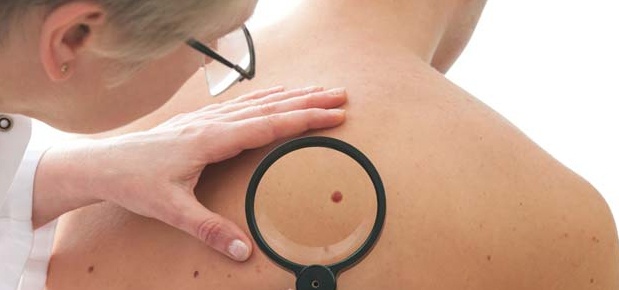Your first visit to Boulevard Dermatology involves a few special steps so that we can get to know you and you can have an informative and useful visit.
 About our Office
About our Office
Being well-prepared for your appointment will ensure that the doctor has all of the needed information to provide the best possible care for you. It will also help alleviate any unnecessary anxiety you may be feeling prior to your first appointment. Educate yourself on some of our treatments and procedures by reviewing the content on this website. Also, take some time to review our staff page and familiarize yourself with the doctors. We look forward to your first visit.
Please print and fill out these forms so we can expedite your first visit: New Patient Forms
In order to view or print these forms you will need Adobe Acrobat Reader installed. Click here to download it
Skin Exams
Getting a skin exam at Boulevard Dermatology is no big deal. It's one of the easiest physical exams you'll ever take. For the most part, you just show some skin, the doctor looks you over and you're ready to go 10 to 15 minutes later. However, that 15 minutes can save your life.
Before you arrive
To get the best value from your skin exam, it makes sense to do a few things beforehand:
- Do a self-exam, so that you can let the doctor know about anything that concerns you. Write it down, including where it is on your body so you don't forget. You can ever take pictures of moles or pigmented areas so you can observe change over time.
- Ask your family members if there is a history of skin cancer in your lineage. Personal or family history of skin cancer increases your chance of future cancers and will make the doctor all the more vigilant.
- Remove nail polish from your fingers and toes so the doctor can clearly see the nails and the skin underneath. These are also places where skin cancer can develop.
- Remove all makeup and lipstick. Most cancers arise on the face, even on the lips, so you want the doctor to have an unobstructed view.

At the Office
- At the start of the visit, give your doctor your personal and family history of skin cancer and mention any spots of concern that you noticed in your self-exam. The dermatologist can check these spots first, and explain why they are or are not causes for concern.
- A complete exam requires you to undress completely. That includes socks, jewelry, and underwear. You can decline to remove your clothing, but remember, the point of a full-body exam is that skin cancers can grow anywhere on your body, even areas rarely exposed to the sun. We can provide you with a hospital gown which can be lowered and raised easily to isolate one area to examine at a time. You can also choose to keep your underwear on until the doctor needs to look at that particular area. You can also ask for a medical attendant to be in the room, or leave the room, whatever makes you feel most comfortable.
- Be prepared for the doctor to visually examine every inch of your body from head to toe looking for spots that may be cancerous. This includes your scalp, ears, eyes, mouth, between your fingers and toes, between your legs, your armpits, and the soles of your feet.
- Feel free to ask questions during the exam so you can be more effective when you examine yourself in the future. Use the visit to educate yourself.
- If any spots arouse concern, the doctor will use preliminary methods to narrow in on a diagnosis. She may simply feel the spot, checking for texture, dimensions, and solidity, or use an imaging tool like a dermatoscope to differentiate the lesion from other, similar lesions. The doctor might also compare it against photos taken at a previous visit to see if the lesion has changed.
- If signs point to skin cancer, the dermatologist will do a biopsy. The doctor will give you a local anesthesia to numb the area, then remove a piece of tissue and send it to a lab for analysis. It can take up to a week or more to learn your results. If it is skin cancer, your doctor will discuss with you what kind of treatment is best.
Follow-Up
- The Skin Cancer Foundation recommends an annual skin exam, but if you have a personal or family history of skin cancer, or have a lesion that could turn cancerous, your doctor may recommend more frequent exams to guarantee that any skin cancer you find will be early and curable.
